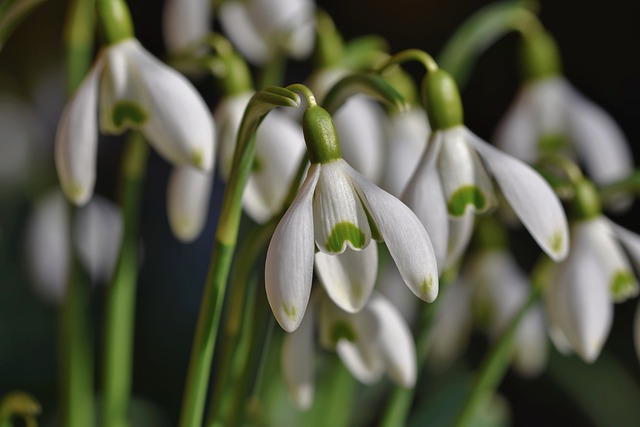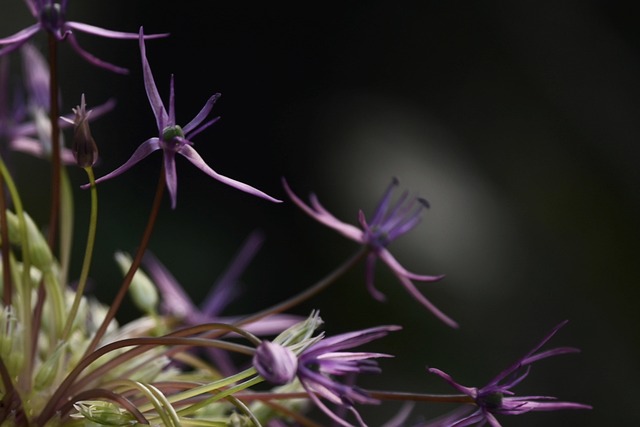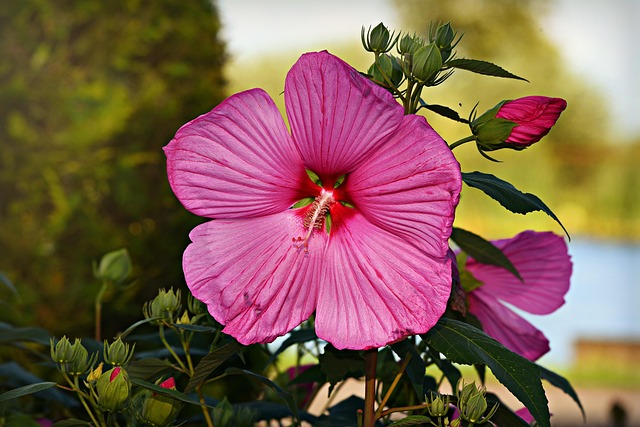Plants require distinct approaches for fertilizing and composting throughout seasons, with spring/summer focusing on growth nutrition, autumn/winter on pest control and soil preparation. A seasonal fertilizer schedule, mimicking nature's cycles, promotes healthy plant growth, enhances pest resistance, reduces environmental harm, and improves soil health through composting. Effective seasonal pest control strategies include prevention (healthy soil, companion planting), monitoring & beneficial insects in summer, physical barriers and cleanup in autumn, and leveraging winter temperatures for natural pest reduction.
In the ever-changing seasons, understanding how to nurture your plants accordingly is key to their health and vibrancy. This article guides you through a holistic approach to gardening, focusing on fertilizing and composting strategies tailored to each season. We explore how seasonal shifts impact plant growth, offering insights into creating a personalized fertilizer schedule. Learn about the benefits of composting for robust soil health and discover natural pest control methods unique to every season, ensuring an eco-friendly and productive garden year-round. Embrace these practices for a thriving, sustainable oasis.
- Understanding Seasonal Changes and Their Impact on Plants
- Creating a Fertilizer Schedule Aligned with Seasonal Needs
- The Role of Composting in Seasonal Plant Health Management
- Natural Pest Control Measures for Each Season
Understanding Seasonal Changes and Their Impact on Plants

Plants, much like humans, have distinct needs that fluctuate with the changing seasons. Understanding these seasonal variations is crucial for effective fertilizing and composting practices. As we move from one season to another, environmental conditions such as temperature, rainfall, and day length directly influence a plant’s growth, development, and nutritional requirements.
During spring and summer, when plants are actively growing, they demand more nutrients to support their vigorous development. This is the time for regular fertilizing to ensure healthy foliage and robust flowering. In contrast, autumn and winter call for a shift in approach, focusing on seasonal pest control and preparing the soil for the upcoming growing season. Composting plays a vital role here, as it helps enrich the soil, enhance its structure, and provide essential organic matter that promotes microbial activity, all of which are critical for plants’ overall health and resilience throughout the seasons.
Creating a Fertilizer Schedule Aligned with Seasonal Needs

Creating a fertilizer schedule aligned with seasonal needs is a game-changer for any gardener looking to nurture their plants healthily and sustainably. The approach involves understanding when different plants require specific nutrients, mimicking nature’s cycles, and avoiding excessive use that can lead to environmental harm, including water pollution and soil degradation—key considerations in seasonal pest control.
By aligning your fertilizing with the seasons, you encourage robust plant growth during active periods. For instance, in spring, when many plants are emerging and flowers are budding, a balanced, nitrogen-rich fertilizer promotes lush foliage and vibrant blooms. As summer progresses, switching to a phosphorus-focused formula can help support fruiting and seed development. Come autumn, a potassium-rich blend prepares plants for dormancy, enhancing their resistance to pests and diseases. This seasonal approach not only ensures your plants get the right nutrients at the right time but also reduces environmental impact by minimizing excess fertilizer runoff.
The Role of Composting in Seasonal Plant Health Management

Composting plays a pivotal role in seasonal plant health management, serving as a holistic and eco-friendly approach to nurturing crops throughout the year. By harnessing the power of organic matter decomposition, gardeners and farmers can create nutrient-rich resources that enhance soil structure, promote healthy root development, and boost overall plant resilience. In seasons where pests and diseases thrive, composting acts as a natural buffer by fortifying the soil ecosystem, thereby reducing reliance on chemical interventions and fostering sustainable seasonal pest control.
This seasonal practice not only minimizes environmental impact but also contributes to a more balanced and resilient garden or farm ecosystem. The organic materials break down over time, providing essential nutrients that support plant growth, reduce erosion, and optimize water retention—all of which are crucial for healthy plants and robust yields during each growing season.
Natural Pest Control Measures for Each Season

In the ever-changing seasons, natural pest control methods can be tailored to meet the unique needs of your garden. During spring, when new plants are emerging, focus on preventing pest infestations by maintaining healthy soil and utilizing companion planting strategies. Herbs like mint, basil, and marigolds have natural insecticidal properties and can deter common pests like aphids and nematodes.
As summer approaches, regular monitoring is key. Encourage beneficial insects such as ladybugs and lacewings, which feed on garden pests. Creating a balanced ecosystem through proper composting practices can also reduce pest pressure. In autumn, consider using physical barriers like row covers to protect crops from munching insects. Additionally, cleaning up fallen leaves promptly prevents pest breeding grounds, as many pests overwinter in debris. Winter offers opportunities for cultural controls; freezing temperatures can kill certain insect eggs and larvae, naturally reducing pest populations.
By aligning your fertilizing and composting practices with seasonal needs, you can promote robust plant health and vibrant growth throughout the year. Understanding seasonal changes empowers gardeners to create a balanced fertilizer schedule, ensuring plants receive the essential nutrients at the right time. Composting adds organic matter to the soil, enhancing its structure and fertility. Additionally, adopting natural pest control measures tailored to each season further contributes to a healthy garden ecosystem, minimizing the reliance on chemical treatments. Embracing these seasonal practices fosters a sustainable gardening routine that respects the natural rhythms of plants and pests alike.
